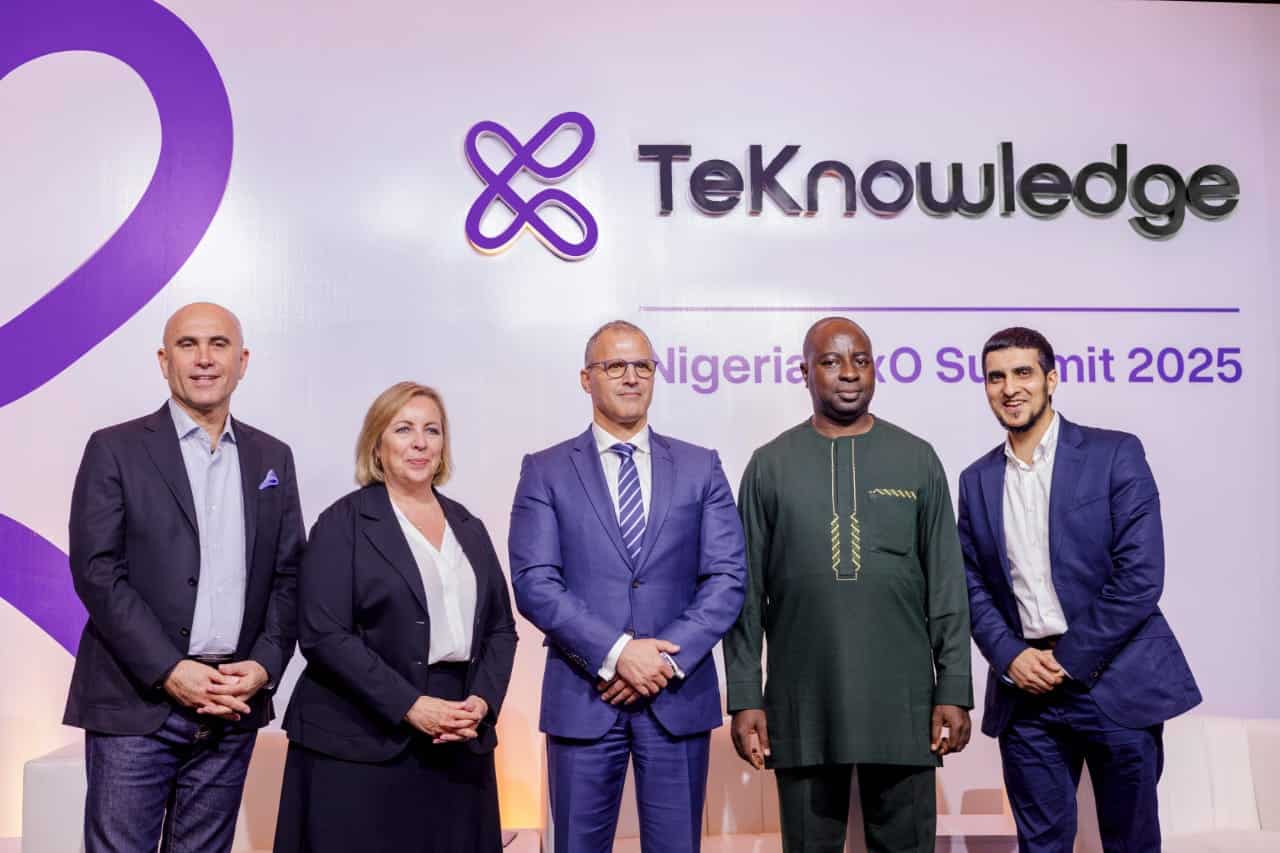Global tech services company, TeKnowledge, has announced the launch of a new AI-First Expert Services model and a rebrand during a summit with public and private sector leaders in Lagos.
The event, held at the Oriental Hotel and dubbed the TeKnowledge Nigeria CxO Summit 2025, marked seven years of the company’s presence in Nigeria, which now hosts its largest global hub with over 2,000 staff serving clients in more than 90 countries.
Speaking at the Summit, Aileen Allkins, CEO of TeKnowledge, emphasised Nigeria’s strategic role in the company’s long-term vision. “When we started operations in Nigeria in 2018 with just 200 people, our ambition was never just about numbers,” Allkins said. “Today we’re 2,000 strong, but we see a future with 4,000, 6,000, even 8,000 professionals across Nigeria and the continent.”
TeKnowledge began in 2010 as a managed services company in Europe and has since expanded into 19 global hubs.
In Nigeria, it has built a reputation for technical support, digital skilling, and cybersecurity, especially through its collaboration with Microsoft to train over 7,000 Nigerians — including 1,000 women — in AI skills.
TeKnowledge’s move comes at a time when Nigeria is trying to position itself as Africa’s tech powerhouse.
Lagos, often called the continent’s “Silicon Valley,” has become a hub for innovation in fintech, healthtech, and more, attracting record-breaking venture capital and interest from global firms.
National initiatives like the Digital Economy Policy and the Startup Act have added policy-level momentum to the country’s transformation.
Despite the booming tech scene, Nigeria faces a substantial tech talent gap. While the country produces a large number of graduates annually, there’s a mismatch between academic curricula and industry demands, especially in areas like AI, cybersecurity, and cloud computing.
TeKnowledge’s emphasis on “hiring and training factories,” as Allkins calls them, echoes broader national strategies like the 3MTT programme aimed at creating a digitally skilled workforce.
The company’s AI-first model integrates customer experience, cybersecurity, and productivity solutions designed for scalability and relevance in emerging markets. Its Security Operations Center, located in Nigeria, offers real-time threat detection and response through AI-powered systems — a vital service as the country sees rising cyber risks.
“This is not just about business,” said Allkins. “From training school children in cyber awareness to equipping government staff and enterprise leaders with AI and security skills, our work is about nation-building.”
The summit also spotlighted Nigeria’s role in Africa’s digital transformation. “Nigerian business leaders aren’t just exploring AI —they’re acting on it with urgency, focus, and vision,” said Nidal Abou-Ltaif, Chief Revenue and Transformation Officer at TeKnowledge.
Yet, the rise of AI in Nigeria also raises ethical questions. How do we ensure privacy, fairness, and accountability in AI deployment? TeKnowledge says its model prioritises ethical and locally relevant use cases — an approach that becomes even more vital as Nigeria begins shaping regulatory responses to AI.
TeKnowledge also revealed plans to expand beyond Lagos, with new hubs across Africa, including existing operations in Rwanda and potential footprints in other countries.
“The talent in Nigeria is world-class,” Allkins said. “It’s time to put that talent at the heart of Africa’s and the world’s digital future.”










